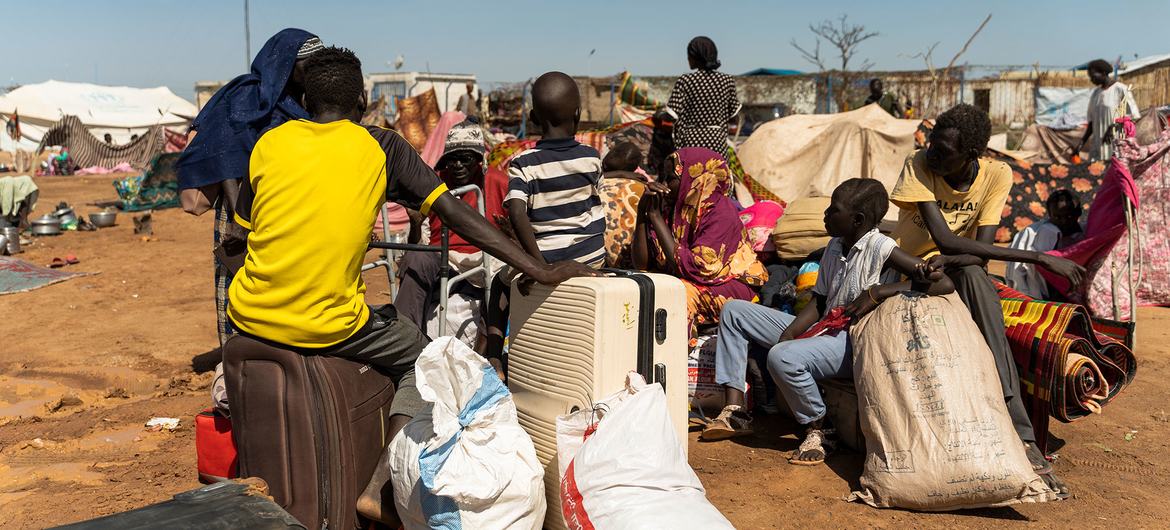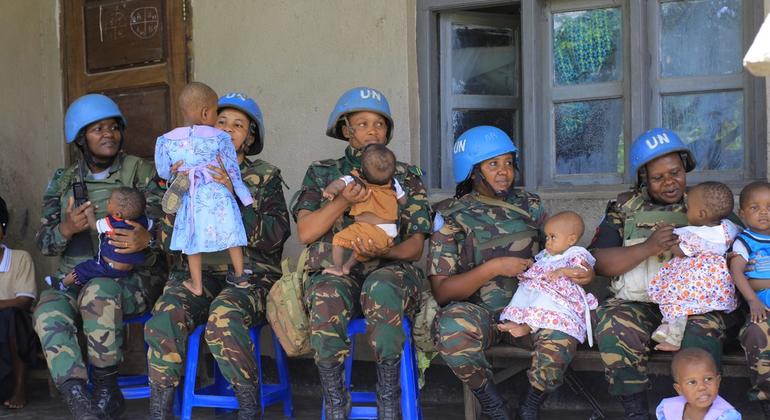The Mission, known as MONUSCO, has been in the country for two decades and is in the process of drawing down.
MONUSCO will remain there until 20 December 2024 with a core mandate that includes protecting civilians, supporting security sector reform, and assisting in disarmament, demobilization and reintegration (DDR) processes.
Elections and insecurity
The Council vote came on the eve of general elections in the DRC and amid escalating insecurity in the east related to the M23 rebel group, as well as in the Greater Katanga region and in Mai-Ndombe and Tshopo provinces.
The resolution was tabled by France and received the backing by all 15 countries that comprise the Council membership.
It recognizes Congolese efforts towards protecting and respecting human rights and fundamental freedoms while demanding that armed groups “cease immediately all forms of violence, other destabilising activities and the illegal exploitation and trafficking of natural resources”. The M23 are also urged to halt any further advances.
The Council reaffirmed that the elimination of the threat posed by armed groups requires an integrated regional approach and strong political engagement.
Members also called on the Congolese Government to cooperate fully with MONUSCO personnel and ensure their safety and security during the withdrawal process.
At the outset of the meeting, the Council stood and observed a minute of silence in honour of the late Amir of Kuwait, Sheikh Nawaf al-Ahmad al-Jaber al-Sabah, who died on Saturday.

People displaced by conflict in Sudan cross over the border to South Sudan.
UNHCR warns of deepening displacement in Sudan
The UN refugee agency, UNHCR, continues to sound the alarm over the war in Sudan, where displacement is deepening as hundreds of thousands more people flee the latest fighting in central Al Jazirah State, southeast of the capital, Khartoum.
UNHCR also voiced concern over reports of an escalation in the conflict in the Darfur region, where renewed fighting in El Fasher, North Darfur, on Saturday, resulted in civilian casualties, injuries and further displacement, followed by looting of homes and shops, and arrests of youth.
An aerial attack was also reported in Nyala in South Darfur, causing casualties and the destruction of homes.
Meanwhile, heavy fighting – including airstrikes and shootings – was reported on the outskirts of Wad Madani, capital of Al Jazarih State, on Friday, which has now reached the town. Over half a million people had fled there from Khartoum after conflict between rival military forces first broke out in mid- April.
Dire humanitarian situation
UNHCR Spokesperson William Spindler said the latest bout of fighting has sparked panic among civilians in Wad Madani and people were seen leaving in vehicles and on foot, some for the second time in mere months.
Between 250,000 and 300,000 have fled the town and surrounding areas since the clashes began, according to UN migration agency IOM.
Mr. Spindler said UNHCR is working to deliver and distribute urgently needed core relief items to the people newly displaced from Al Jazirah to Sennar and Gedaref States.
“Despite efforts by national and international humanitarian organizations and local actors to provide assistance, the overall humanitarian situation remains dire,” he warned.
The war that erupted in April between the Sudanese Army and a rival militia known as the Rapid Support Forces has forced more than seven million people in Sudan to flee their homes, including to seek shelter in neighbouring countries, many of whom have been repeatedly uprooted.
UNHCR are very worried that if the fighting further escalates and spreads to White Nile State, it could significantly impact the work of humanitarian organizations supporting over 437,000 South Sudanese refugees and some 433,000 internally displaced Sudanese there.
Sharp increase in journalists killed in conflict zones: UNESCO
2023 has been a particularly deadly year for journalists who work in conflict zones, with killings almost doubling compared to the past three years, The UN Educational, Scientific and Cultural Organization (UNESCO) said on Tuesday.
Furthermore, the past three months have already been the deadliest quarter for journalists in conflict zones since at least 2007, with 27 deaths.
This year, 65 journalists were killed in the line of duty, compared to 88 in 2022.
However, UNESCO chief Audrey Azoulay said this overall drop conceals a very alarming phenomenon: the sharp increase in the number killed in conflict zones.
Gaza war toll
At least 38 journalists and others who work in media were killed in countries in conflict this year, compared to 28 in 2022 and 20 in 2021.
Most of these conflict-related killings occurred in the ongoing hostilities in the Middle East, with UNESCO having so far reported 19 killings in Palestine, three in Lebanon and two in Israel since 7 October.
Afghanistan, Cameroon, Syria and Ukraine also each saw at least two killings.
The figures do not include deaths of journalists and media workers in circumstances unrelated to their profession, which UNESCO said have also been reported in significant numbers in 2023.



